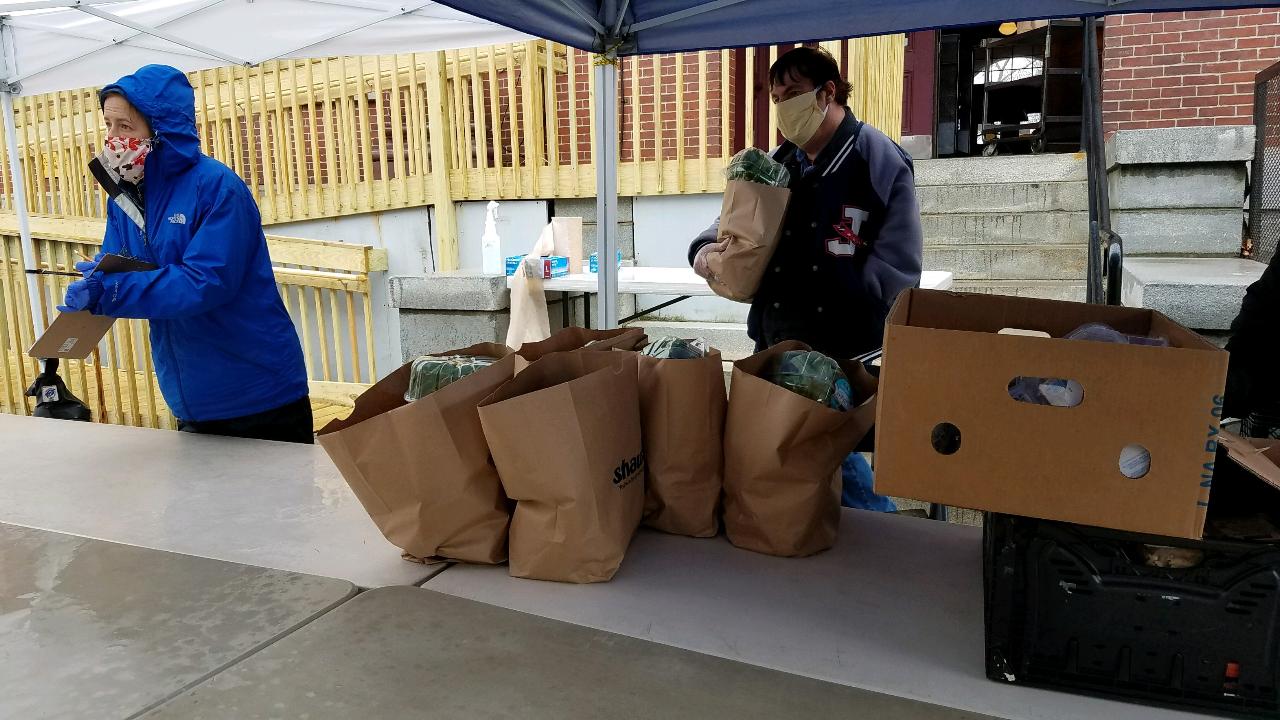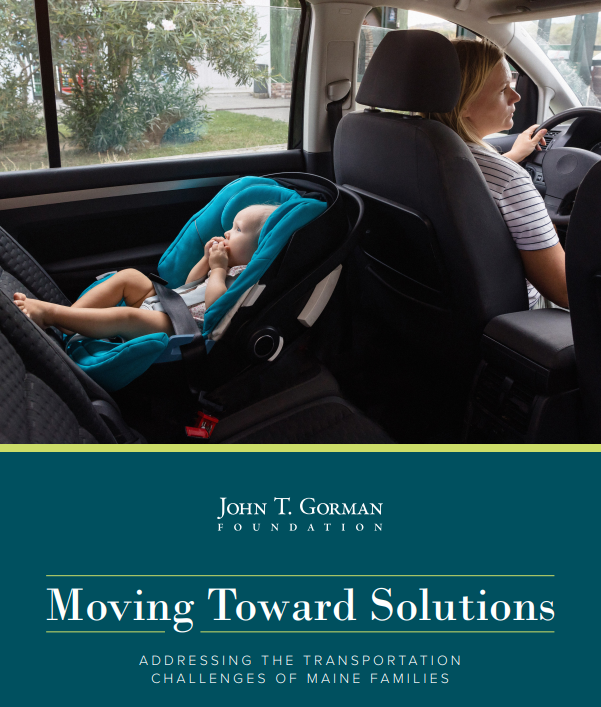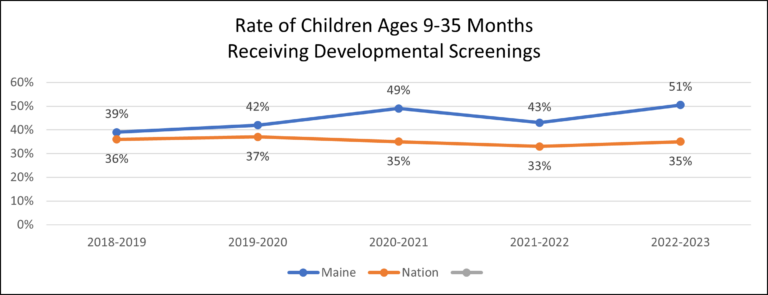John T. Gorman Foundation partners adapt and innovate to serve vulnerable Mainers during the pandemic
Maine’s nonprofit community and other institutions serving low-income Mainers are dealing with an unprecedented situation that no one could have anticipated just a few months ago. Even before the COVID-19 pandemic, the challenges before them were not easy. In a very short time, their jobs have become much more difficult and important.
Maine’s nonprofits have done an excellent job rising to the moment, including many Foundation grantees. Preble Street Resource Center and others have created temporary homeless shelters. Good Shepherd Food Bank and its partners have risen up to fill a multi-fold increase in food insecurity. Others have found new ways to connect with homebound seniors, keep students engaged while schools are closed, and support families who are suddenly out of work and in need of assistance. These are just a few examples of how Maine’s nonprofits have pivoted from their traditional roles to address current and critical needs of the people they serve.
The difficulty of such a shift cannot be overstated. What does such rapid change look like within an organization? We spoke to four of the Foundation’s partners – The Root Cellar, York County Community Action Corporation, Southern Maine Area Agency on Aging, and Healthy Communities Coalition of Franklin County – about how they have responded to the crisis, the effects it has had on the people they serve, the biggest challenges before them, and the resources that have been most helpful to them during this time.
The Root Cellar: Maintaining Connection
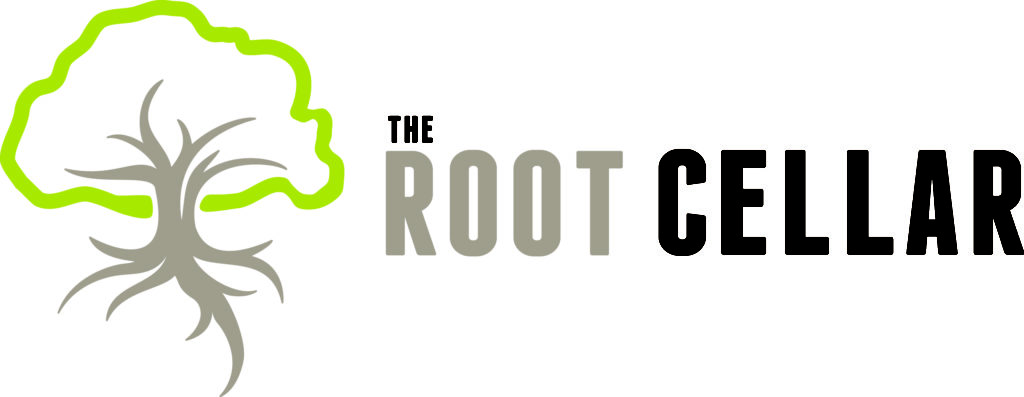
“We are a group that gathers,” said Director Joel Furrow. “Physical space is really a big part of that.”
With social distancing, the challenge has been maintaining its connection to the community as best as it can in a safe way. In particular, the organization is working hard to stay connected with the students they serve.
When Lewiston schools struggled to get online learning options up and running for students, the Root Cellar quickly enlisted the help of teachers, who were awaiting further instruction about when school might start back up, to create grade-level educational materials and worksheets to help children who were likely to fall behind. The low-tech format has been important because students’ access to technology and the Internet varies. Additionally, as one of the Lewiston school district’s food distribution sites, they incorporated the dissemination of these materials – what Furrow calls “brain food” – as part of their food distribution to families. To incentivize students to complete the work, they offered free books in exchange for completed worksheets. This strategy worked, to the tune of 5,000 worksheets!
“We’ve seen a tremendous desire to learn,” Furrow said.
To meet new needs in the community, the Root Cellar has also expanded its emergency food pantry. “We’re seeing different people than what we’ve seen before,” Furrow said, including those who have been released from incarceration due to social distancing efforts.
The Root Cellar has become an important part of the COVID-19 response in Lewiston’s Tree Street Neighborhood, responding quickly with meal deliveries or basic needs when people are in crisis, filling educational needs and helping people have been incarcerated integrate safely back into their community. Their role in the communities they serve has always been important, but never more critical.
York County Community Action Program: Responding, Reallocating, and Reprioritizing
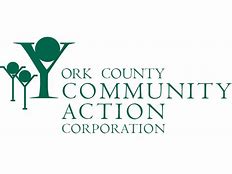
YCCAC Executive Director Barbara Crider said the agency’s navigators have used the rental calls as an opportunity to connect people to other assistance that they may not know they are eligible to receive. That has taken increased communication and collaboration from different parts of the organization.
“In many ways, we haven’t missed a beat,” Crider said, as telephone and digital contacts have replaced in-person visits. Staff are working remotely, homebuyer education classes have gone to Zoom, HeadStart educators are reading and singing to children on Facebook, and the organization has been given flexibility to determine eligibility for some federal programs over the phone.
“We are finding that certain clients prefer to conduct their entire visits by text,” said Deputy Director Carter Friend.
Some services have required more of an adjustment, such as YCCAC’s regional transit service. Just a few days into the outbreak, ridership screeched to a trickle. Some services have continued in a reduced fashion to provide rides to essential employees. Many drivers have now been redeployed to picking up food at local pantries and distributing it to people at their homes.
The most significant effect has been on the YCCAC’s community health center, which had to defer many types of visits and procedures. As the state begins to reopen, it is now looking at how to resume services while protecting patients with high-risk chronic conditions.
Southern Maine Agency on Aging: Serving the Most Vulnerable

The challenge for SMAA has been to continue services—including keeping seniors from being isolated—while limiting physical exposure.
“It’s a scary time for seniors,” Walton said, noting that callers to the agency are expressing a high level of anxiety. Many first-time callers over the last few weeks have been looking to sign up for Meals on Wheels, as they fear going to the store themselves or have lost access to someone who would go for them. Before the outbreak, SMAA delivered food to just over 700 clients. It now is serving over a thousand, increasing the number of meals served from 2,800 to 5,000 a week.
Funds from federal stimulus bills have helped cover the extra costs, but volunteers are still needed. “We were concerned by the number of our Meals on Wheels volunteers who are also older adults,” she said. To fill the gap, SMAA put out a call for emergency volunteers and received 280 calls in response
“The community is leaning in and stepping up in a pretty exciting way,” Walton said.
Another step SMAA took to protect volunteers and clients was reducing the frequency of food drop-offs from twice a week to once (while delivering the same amount of food in total). To address the downside of having fewer opportunities to check in with homebound seniors, SMAA has expanded a program to connect with seniors over the phone.
Rural Response: Story from the FieldThe Healthy Communities Coalition of Franklin County offers a range of services to residents of Western Maine, including mobile health screenings, a home-visiting health service, food assistance, nutrition education, youth support, and senior companionship. Because there are fewer service providers in this rural part of the state and a large area to cover, Executive Director Jennifer McCormack says her staff has to be versatile and, quite literally, go the extra mile to provide assistance. This has been especially true during the outbreak. She shared a story from of one of her nurses as an example. “On a cold March day, in the midst of a late season snow storm, I received a call from one of our volunteers. Their Senior Buddy was out of oil and did not have heat. I immediately called the Resource Navigator and the individual was able to receive emergency fuel delivery. The Resource Navigator also arranged for the senior to apply for heating assistance. “A few weeks later the volunteer called again and reported that this same buddy was not able to get their medications due to lack of transportation and that they were low on toilet paper and food. I was able to get an emergency food bag and toiletries and delivered it to the patient 38 minutes away. I also drove to the next town over to retrieve her medications. “I called the patient from her door yard. As we made eye contact through her living room window – my face was covered with a mask – I tried to convey a friendly smile with my eyes to reassure her that I was there to help.” |
The Power of Collaboration
When asked what has been most helpful to get through this time, these nonprofit leaders expressed a theme of cooperation among partners at all levels.
“It is all about collaboration,” Friend said – noting, in particular, increased flexibility from YCCAP’s funders like the federal government.
For groups serving seniors, Walton agreed, saying the moment has spurred a broader conversation among partners about how best to serve this population in Southern Maine.
“There is a great level of cooperation with the city, agencies and other organizations,” Furrow said at The Root Cellar. “A lot of knowledge is being shared about who is covering what needs and where the gaps are. It’s not territorial at all.”

